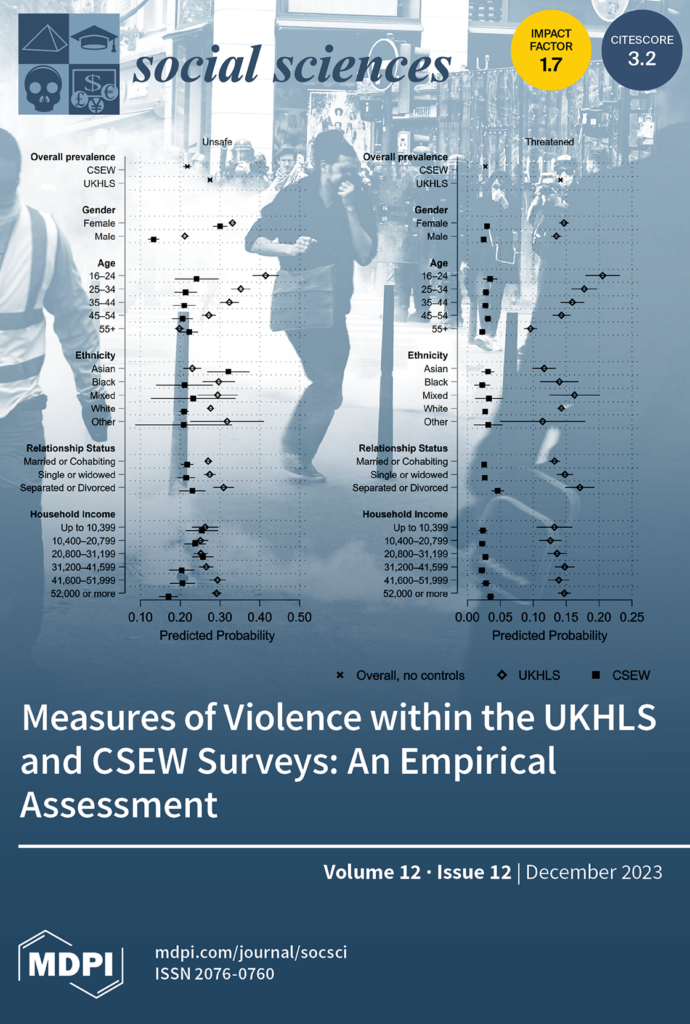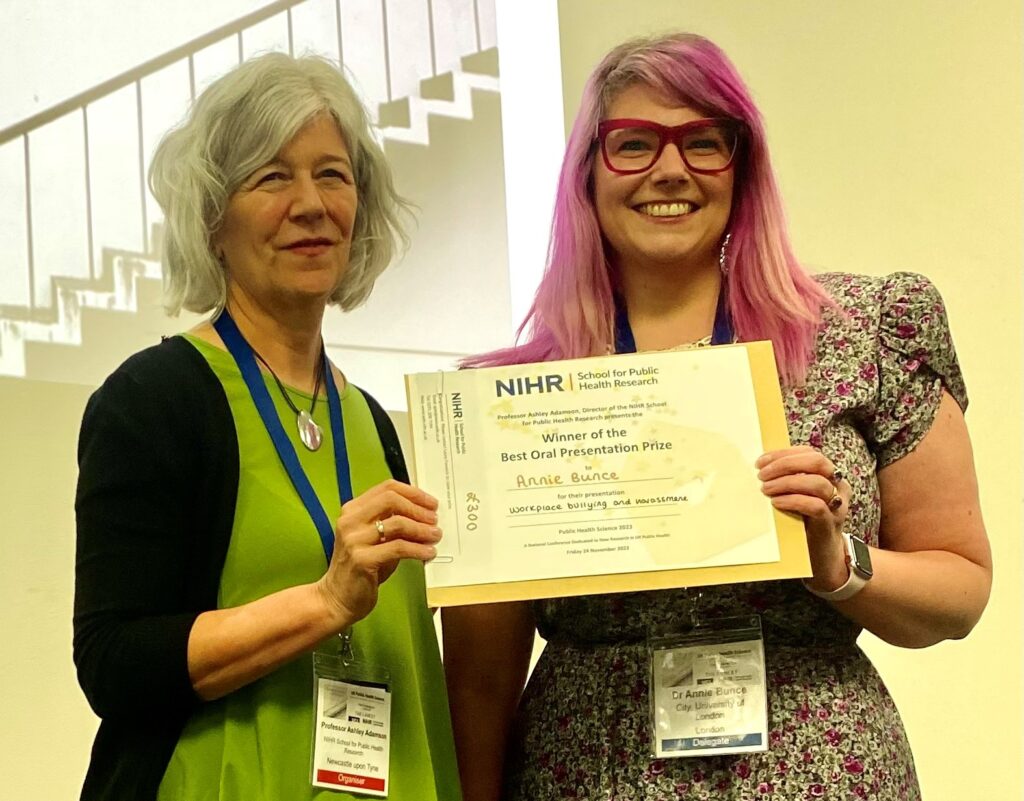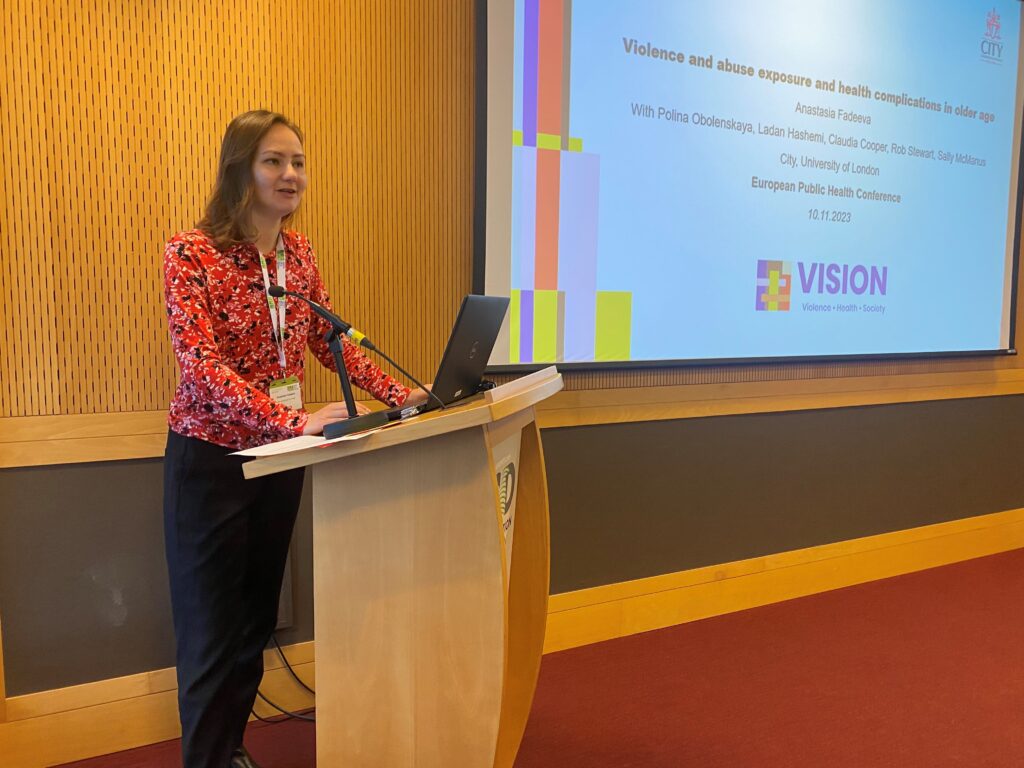This event is in the past.
If registered, please enter through the main entrance in the University Building, across from Northampton Square, a green space with a gazebo. There is also a silver sculpture in front of University Building.
Only those that registered will be able to enter the conference room.
To register please see: VISION and VASC Adolescent Domestic Abuse conference
The UK Prevention Research Partnership Violence, Health & Society (VISION) consortium and the Violence and Society Centre at City, University of London, are pleased to announce the Adolescent Domestic Abuse conference.
Thursday 18th April 2024, 10:00 – 17:00 followed by a reception
Oliver Thompson Lecture Theatre (Tait Bldg), City, University of London, EC1B 0HB
Adolescent domestic abuse, which includes physical, emotional, and/or sexual abuse that occurs between young people who are, or were, dating, is often overlooked in research, policy and practice. The current definition of domestic abuse leaves those aged under 16 in teenage relationships falling into the gap between child protection procedures and adult-focused domestic abuse policy.
The conference brings together academics, practitioners, and policy makers to share existing research, policy and practice.
Registration is required and free. This is an in person conference only and catering will be provided. If you cannot attend but would like the slides, please contact the email listed below.
The programme:
- 9:30 – 10:00 Registration & refreshments
- 10:00 – 10:20 Welcome & setting the scene, Dr Ruth Weir, Violence and Society Centre, City, University of London and Katy Barrow-Grint, Assistant Chief Constable, Thames Valley Police
- 10:20 – 10:40 Introductory Speaker, Louisa Rolfe OBE, Metropolitan Police and National Police Chief Council lead for Domestic Abuse
- 10:40 – 11:00 Rapid evidence review on domestic abuse in teenage relationships, Flavia Lamarre, and Dr Ruth Weir, City, University of London
- 11:00 – 11:30 Learning from the lived experience, SafeLives Changemakers
- 11:30 – 12:00 Researching abuse within teenage relationships: A critique of a decade’s work and what we could do better, Professor Christine Barter, Co-Director of the Connect Centre for International Research on Interpersonal Violence and Harm, University of Central Lancashire
- 12:00 – 13:00 Lunch
- 13:00 – 14:20 Panel 1: Teenage relationships and abuse: What the research says, chaired by Professor Sally McManus, Director of the Violence and Society Centre and Deputy Director of the VISION research project
- Panel 1: Step up, Speak Out: Amplifying young people’s voices in understanding and responding to adolescent domestic abuse, Janelle Rabe, Centre for Research into Violence and Abuse, Durham University
- Panel 1: ‘In practice it can be so much harder’: Young people’s approaches and experiences of supporting friends experiencing domestic abuse, Jen Daw and Sally Steadman South, SafeLives
- Panel 1: Healthy relationships: children and young people attitudes and influences, Hannah Williams and Sarah Davidge, Women’s Aid
- Panel 1: Intimate partner femicide against young women, Dr Shilan Caman, Karolinska Institutet, Sweden
- 14:20 – 14:35 Break
- 14:35 – 15:35 Panel 2: Sexual violence in teenage relationships, chaired by Katy Barrow-Grint, Thames Valley Police
- Panel 2: “Always the rule that you can’t say no”: Adolescent women’s experiences of sexual violence in dating relationships – Dr Kirsty McGregor, Loughborough University
- Panel 2: Empowering Youth: Addressing Online Pornography and Adolescent Domestic Abuse – Insights from the CONSENT Project – Berta Vall, Elena Lloberas and Jaume Grané, Blanquerna, Barcelona, Spain and The European Network for Work with Perpetrators of Domestic Violence, Berlin, Germany
- Panel 2: Image-Based Sexual Abuse as a Facet of Domestic Abuse in Young People’s Relationships – Dr Alishya Dhir, Durham University
- 15:35 – 15:50 Break
- 15:50 – 16:50 Panel 3: Specialist services and local government, chaired by Dr Olumide Adisa, University of Suffolk
- Panel 3: The role and value of Early Intervention Workers in supporting children and young people aged 11–18 in a domestic abuse service context – Elaha Walizadeh and Leonor Capelier, Refuge
- Panel 3: Prevention, Identification, Intervention and Protection: Learning on teenage domestic abuse from a multi-agency model in the London Borough of Islington – Aisling Barker, Islington Borough Council
- Panel 3: Tackling adolescent domestic abuse in Lambeth – Rose Parker, Erika Pavely, Ariana Markowitz, and Siofra Peeren, Lambeth Health Inequalities Research and Evaluation Network
- 16:50 – 17:00 Closing remarks and next steps
- 17.00 – onwards Drinks reception, Conference attendees are invited to a drinks reception in the Oliver Thompson foyer
The abstracts
The abstracts and information on the poster presentations and stands are below for downloading.
For further information and any questions, please contact VISION at VISION_Management_Team@city.ac.uk
Photo by Tim Mossholder on Unsplash





